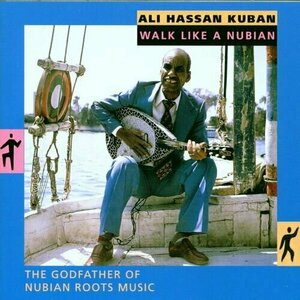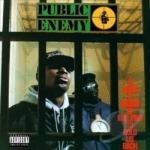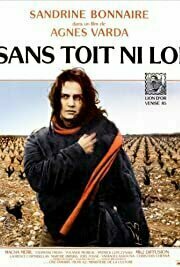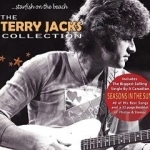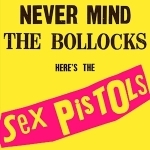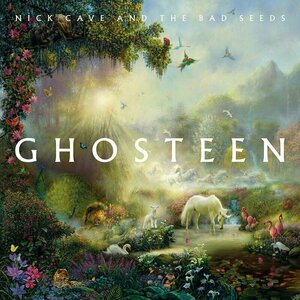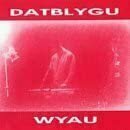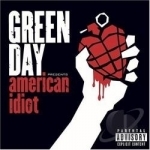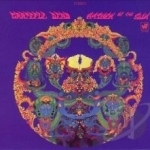Search
Search results
Pete Wareham recommended Habibi by Ali Hussan Kuba in Music (curated)
Moby recommended It Takes a Nation of Millions to Hold Us Back by Public Enemy in Music (curated)
Illeana Douglas recommended Vagabond (1985) in Movies (curated)
Jonathan Donahue recommended track Seasons In the Sun by Terry Jacks in Starfish on the Beach by Terry Jacks in Music (curated)
Daniel Boyd (1066 KP) rated Never Mind The Bollocks, Here's The Sex Pistols by The Sex Pistols in Music
Nov 2, 2017
The ultimate reset switch on the musical chart machine
This album changed everything and brought rock ‘n roll music back down to ground level where it belongs. It perfectly captured the mindset of a generation and it was the turning point that was so badly needed at that point in musical history. These four lads were saying exactly what they meant and we could hear their pain and frustration through Lydon’s voice as he screamed down the microphone at us. This album is gripping from start to finish and full of strikingly relevant lyrics even today. Without Never Mind The Bollocks, you can forget Oasis or Nirvana or Green Day or any punk band to come after ’77 for that matter. This album had to happen as it totally changed the course of rock ‘n roll history for the better and gave us all what we wanted again. This band is as important to rock ‘n roll music and British culture as the Beatles or the Rolling Stones and they only ever released the one album, that is how important this record is. This album affected the style of an entire generation, it affected the politicians and it gave the how the majority of the country was feeling a united voice. The Tory government and the Royal Family may be scum, but it is hard to argue the fact that they have inspired some of the best music over the last 50 years. This album defines what it means to be young and pissed off and overlooked by the older generations who hold the power. It is an attack launched at anyone who has ever looked down their nose at anyone else. It is the quintessential lesson in how to compose a legendary rock n’ roll album and it reminded the world that you don’t need a bunch of overcomplicated instrumentals or 16 minute long interludes to make a great record, all you need is a few instruments, some raw talent and a determination to tell people how it really is. The Pistols wear their hearts on their sleeve in this record, both through their instruments and their lyrics, there is so much feeling and passion and genuine dissatisfaction on this record, yet it is also so careless and spur of the moment and that combination results in one of the greatest albums of the last half century in my opinion.
If American Idiot is a slap on the wrist of the government and a nudge to change things, Never Mind The Bollocks is the Pistols grabbing the man by the throat and squeezing until he is forced to listen to them. In the years prior to this record coming out, the charts were dominated by songs that were being played on a minimum of 15 different instruments per song. There hadn’t been a record composed solely of a guitar, a drumkit, a bass and a vocal in far too long and The Sex Pistols hit the reset button on rock ‘n roll music going forward. This record had to happen, without it bands like Oasis and Nirvana would never have came to be, or if they did they would sound vastly different to what they do today. This record has an undeniable feeling to it that no other record does, it is fury, frustration, desperation and sadness all at once and for me, there is nothing else in musical history that quite captures that feeling in the same way. This is simply four bored lads with pure raw talent telling us exactly how they feel and making sure not to leave out any of the gory details. Every riff on this album is a violent wake up call, every drum beat feels like a well deserved punch to the face and with Lydon’s voice and lyrics topping it all off, it is a beautifully ugly piece of pop culture that is relevant even today. The Pistols take on everybody in this album, from the Queen, to politics, to record labels and all of it is so well composed and yet so spur of the moment simultaneously. It’s like Lydon is spitting at you but in perfect time and in the most unique way that has ever been put to record. The band had a flair that lit Britain on fire, especially the middle classes, this record got banned out of fear that it would cause the man on the street to rise up and see through the bullshit that politicians and the government try to spin us day in and day out. Every song points out what is wrong with the country and its ethics and policies and it defines the reasons that the public are fed up of it. The whole thing flows so well and even though it takes just under 40 minutes to listen to the entire album from start to finish, it goes by in a flash and leaves such a strong impression that causes you to be left thinking about what you have just heard for hours afterwards. This is a fleeting moment in modern history captured in the most brief, yet poignant way and without it the very culture of Britain would be entirely different. This album is so important, not just for it’s anti establishment themes or its musical reasons, but because it actually altered the course of history beyond just the musical ecosystem. There was never an album before Never The Bollocks that sounded anything like it and there hasn’t been one since and sadly, there probably never will be. The last great rock n’ roll band that the world really took notice of were Oasis and since then there has been nothing significant enough to capture the world’s attention. If you ask me what we need right now is another band like the Sex Pistols to swagger up and take the spotlight away from the dance/pop garbage that is dominating today’s charts. We need a band that can reset the musical machine and show the youth of today that all you need to make it is raw talent, a few instruments and a sprinkle of determination and the world can be yours. I am hopeful it will eventually happen, it has to and in my mind it is inevitable and is more a question of when rather than a question of if. That album is what will resurrect rock n’ roll music and bring it back to the forefront and the group that manages it will be the band that defines their respective generation. Since Oasis split the crown has been up for the taking and all we need is a band with enough balls and talent and who actually have something to say, to reach out and grab it.
If American Idiot is a slap on the wrist of the government and a nudge to change things, Never Mind The Bollocks is the Pistols grabbing the man by the throat and squeezing until he is forced to listen to them. In the years prior to this record coming out, the charts were dominated by songs that were being played on a minimum of 15 different instruments per song. There hadn’t been a record composed solely of a guitar, a drumkit, a bass and a vocal in far too long and The Sex Pistols hit the reset button on rock ‘n roll music going forward. This record had to happen, without it bands like Oasis and Nirvana would never have came to be, or if they did they would sound vastly different to what they do today. This record has an undeniable feeling to it that no other record does, it is fury, frustration, desperation and sadness all at once and for me, there is nothing else in musical history that quite captures that feeling in the same way. This is simply four bored lads with pure raw talent telling us exactly how they feel and making sure not to leave out any of the gory details. Every riff on this album is a violent wake up call, every drum beat feels like a well deserved punch to the face and with Lydon’s voice and lyrics topping it all off, it is a beautifully ugly piece of pop culture that is relevant even today. The Pistols take on everybody in this album, from the Queen, to politics, to record labels and all of it is so well composed and yet so spur of the moment simultaneously. It’s like Lydon is spitting at you but in perfect time and in the most unique way that has ever been put to record. The band had a flair that lit Britain on fire, especially the middle classes, this record got banned out of fear that it would cause the man on the street to rise up and see through the bullshit that politicians and the government try to spin us day in and day out. Every song points out what is wrong with the country and its ethics and policies and it defines the reasons that the public are fed up of it. The whole thing flows so well and even though it takes just under 40 minutes to listen to the entire album from start to finish, it goes by in a flash and leaves such a strong impression that causes you to be left thinking about what you have just heard for hours afterwards. This is a fleeting moment in modern history captured in the most brief, yet poignant way and without it the very culture of Britain would be entirely different. This album is so important, not just for it’s anti establishment themes or its musical reasons, but because it actually altered the course of history beyond just the musical ecosystem. There was never an album before Never The Bollocks that sounded anything like it and there hasn’t been one since and sadly, there probably never will be. The last great rock n’ roll band that the world really took notice of were Oasis and since then there has been nothing significant enough to capture the world’s attention. If you ask me what we need right now is another band like the Sex Pistols to swagger up and take the spotlight away from the dance/pop garbage that is dominating today’s charts. We need a band that can reset the musical machine and show the youth of today that all you need to make it is raw talent, a few instruments and a sprinkle of determination and the world can be yours. I am hopeful it will eventually happen, it has to and in my mind it is inevitable and is more a question of when rather than a question of if. That album is what will resurrect rock n’ roll music and bring it back to the forefront and the group that manages it will be the band that defines their respective generation. Since Oasis split the crown has been up for the taking and all we need is a band with enough balls and talent and who actually have something to say, to reach out and grab it.
Kirk Bage (1775 KP) rated Ghosteen by Nick Cave & The Bad Seeds in Music
Mar 3, 2020 (Updated Aug 6, 2020)
My intention was to listen to this twice through and then tell you what I thought about it. In the past, I have always admired Nick Cave more in theory than in practice. Finding his heavier touches a little too “noisy”. Typified by the 2004 release Abbatoir Blues / The Lyre of Orpheus, where I listened to the latter, gentler side over and over, and largely left the more raucous tracks on the former alone.
Because of this personal preference, I have ended up virtually listening to Ghosteen on loop for a full week, as it leans very definitely towards the softer side of his soul – at times almost ambient dreamscape, washing over you like tired thoughts just before sleep. And, often, that is what it became for me: a night album to drift away to.
It is an album about grief, regret, spirituality and humanism. There is a misconception that it is wholly inspired by the death of Cave’s son Arthur, but, in his own words, it was more the death of band member Conway Savage that allowed the themes and lyrics to become the work.
As always, it is Cave’s poetry that emerges as the backbone and soul of every song. The melodies wash over you, at times indistinguishable as separate tracks, and you begin to feel invited into a man’s heart and mind as he explores mortality, shifting between anger, acceptance, fear and hope, in a segue of sound that feels ultimately like a mood painting, defying criticism.
At times listening feels like an intrusion; like these thoughts are too personal to eavesdrop on. At other times, you feel taken by the hand and invited to look at something beautiful. If you allow yourself to be taken on this journey willingly, your empathy will be coaxed and encouraged, and it will be safe. Sadness is only one part of grief, seems to be the message, and it’s a message I relate to and adore.
Labels such as “art-rock” and “post-punk” get thrown at Cave, in futile efforts to pin him down. I think it best not to try. For me, he is truly one of a handful of musicians alive who can be called an artist without hyperbole. His work has texture and emotion that goes beyond how we normally judge music. Making it ok to not “like” a song, as long as it tells part of the story.
For sure his best work for quite a while. At times, so perfect it seems churlish to judge it at all.
Because of this personal preference, I have ended up virtually listening to Ghosteen on loop for a full week, as it leans very definitely towards the softer side of his soul – at times almost ambient dreamscape, washing over you like tired thoughts just before sleep. And, often, that is what it became for me: a night album to drift away to.
It is an album about grief, regret, spirituality and humanism. There is a misconception that it is wholly inspired by the death of Cave’s son Arthur, but, in his own words, it was more the death of band member Conway Savage that allowed the themes and lyrics to become the work.
As always, it is Cave’s poetry that emerges as the backbone and soul of every song. The melodies wash over you, at times indistinguishable as separate tracks, and you begin to feel invited into a man’s heart and mind as he explores mortality, shifting between anger, acceptance, fear and hope, in a segue of sound that feels ultimately like a mood painting, defying criticism.
At times listening feels like an intrusion; like these thoughts are too personal to eavesdrop on. At other times, you feel taken by the hand and invited to look at something beautiful. If you allow yourself to be taken on this journey willingly, your empathy will be coaxed and encouraged, and it will be safe. Sadness is only one part of grief, seems to be the message, and it’s a message I relate to and adore.
Labels such as “art-rock” and “post-punk” get thrown at Cave, in futile efforts to pin him down. I think it best not to try. For me, he is truly one of a handful of musicians alive who can be called an artist without hyperbole. His work has texture and emotion that goes beyond how we normally judge music. Making it ok to not “like” a song, as long as it tells part of the story.
For sure his best work for quite a while. At times, so perfect it seems churlish to judge it at all.
Gruff Rhys recommended Pyst by Datblygu in Music (curated)
Daniel Boyd (1066 KP) rated American Idiot by Green Day in Music
Nov 2, 2017
Soda Pop & Ritalin
For some reason people like to slag Green Day, they are the butt of a lot of punk music jokes and to be honest I do get why. I understand why people see their use of makeup and their whole zany persona as a farce and don’t take them seriously, but no matter what you think of them in general, it is hard to deny that their seventh album, ‘American Idiot,’ perfectly captured the zeitgeist at the time, especially in the US. The album was an unexpected maturation of any of the band’s previous efforts and capitalised on their potential. When Billie Joe Armstrong wrote the album, he chose to channel his feelings into a cast of various characters and use a concept album format to display the emotions he and his peers felt at the time. I would argue the fact that American Idiot is definitively a concept album, as it doesn’t actually tell a cohesive story with a beginning, middle and end, instead opting for the approach of latching on to a certain feeling, whether it be rage or love and assigning that to a specific character and then throwing all of these characters into the mixing pot together. We hear the album from the perspective of the protagonist in the story, Jesus Of Suburbia, a young man who is sick of a broken system and feels disillusioned and uninspired by everything that he sees around him. The reason that so many people felt this way at the time of this album’s release, 2004, was due to the Bush administration’s misguidance and outright lies and due to the fallout from the 9/11 terrorists attacks that has never really gone away in America since the incident occurred. So, fed up of his suburban, dead end town Jesus leaves home and begins a quest of self discovery that involves a great deal of substance abuse, which ends up leading to the creation of an alter ego residing in Jesus’ mind who calls himself Saint Jimmy. Think Tyler Durden in fight club, but if he had a Mohican and ear stretchers. Jimmy leads Jesus on the thinly veiled path to revolution, which simply turns out to be a path to self destruction and eventually when Jesus hits rock bottom, (just like Fight Club,) he forces Jimmy to commit suicide and rids his mind of him. At the end of the album though Jesus’ fate is left ambiguous, but what is clear is that his journey has taken its toll on him, which is signified by the fact that he forgets the name of the girl that he fell in and out of love with during his spiritual quest. This album perfectly captured the mindset of a generation of kids forgotten by the system that was put in place to help them grow. American Idiot gives the man on the street a well informed, unified voice and actually injects some form of leadership into the political and social landscape at the time, even if it probably isn’t the form of leadership that your parents had in mind, or the government had put in place for you. A wake up call that is essential and still relevant today, this album and its story and character carries the important message that we shouldn’t settle for any less than what we deserve and what we deserve is often a lot better than what we end up getting. This album is pretty much the American version of Never Mind The Bollocks.
